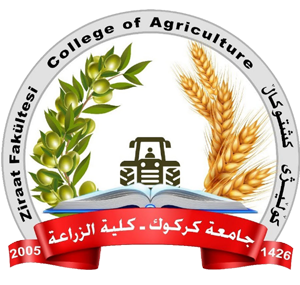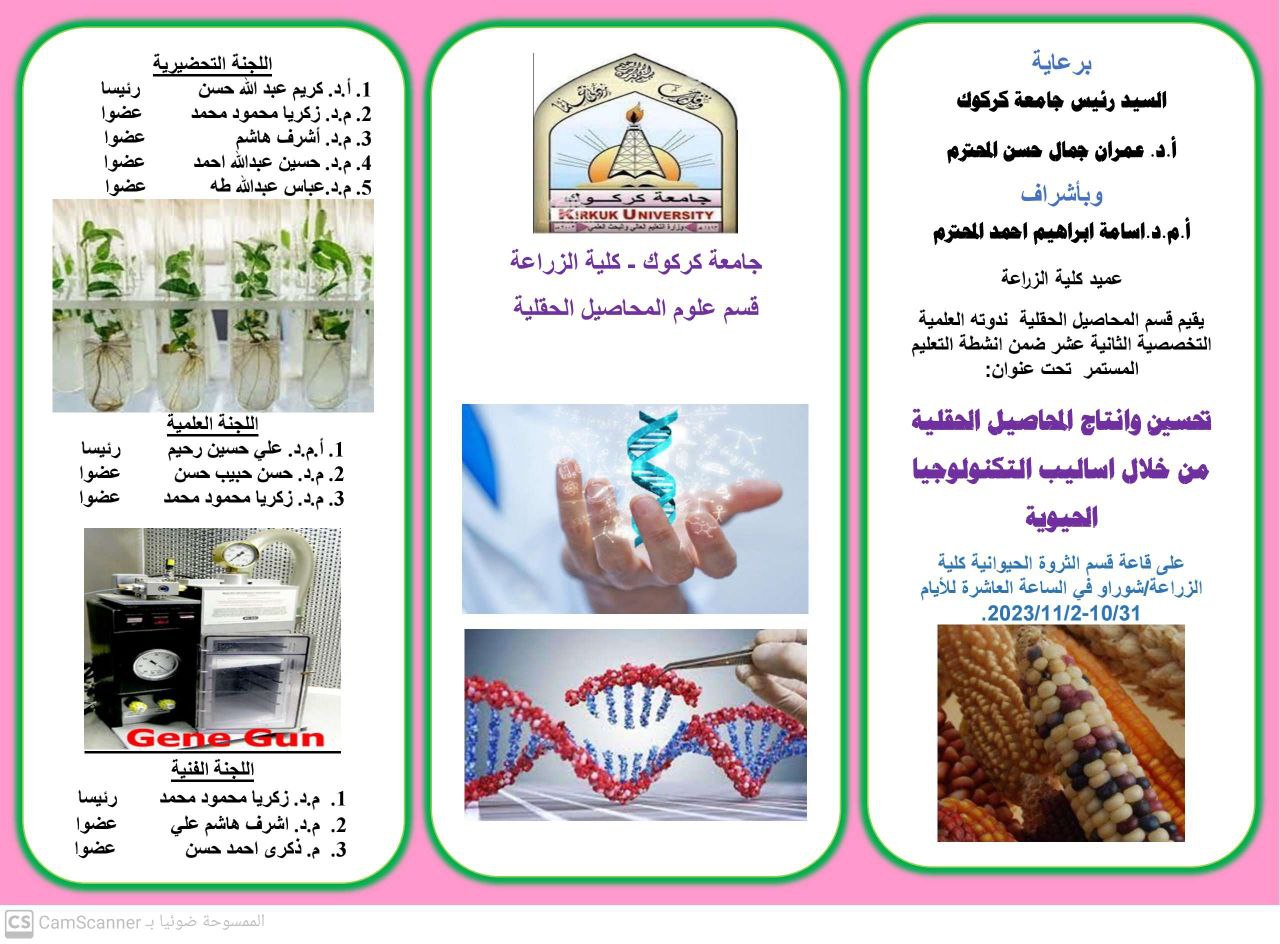Under the patronage of the esteemed President of the University of Kirkuk, Professor Dr. Imran Jamal Hassan, and under the supervision of the esteemed Dean of the College of Agriculture, Assistant Professor Dr. Osama Ibrahim Ahmed, the Field Crops Department organized its twelfth specialized scientific symposium, as part of continuing education activities, on improving and producing crops through biotechnology methods, In the presence and participation of researchers and specialists in the agricultural field.
The symposium aimed to "open the way for studies in the field of biotechnology in a very intensive manner, for the successful use of new technological products, and for continuous improvement and knowledge of the properties of genetic material, the functions of biological systems, and many opportunities to benefit from this technology, including an increase in production and a reduction in the use of pesticides and bush pesticides." , protecting soil and water as well as improving product quality.
The symposium included a lecture by Dr. Hussein Abdullah, in which he explained through two topics: the first was a historical overview of modified or genetically modified plants, and the second was about the stages of genetic modification and direct and indirect injection of recombinant DNA (gene) into plant cells, joining them to the genome, and then obtaining varieties. Transgenic.
The symposium recommended, “In order to obtain safe food, scientific methods must be developed to accurately determine the side effects that may arise from genetically modified plants, animals, and microorganisms. These risks also apply to non-genetically modified animals and plants, noting that research has shown that products of genetically modified organisms GMOs are as safe as other products, but risk analyzes for GMO products must be developed and strengthened against unforeseen influences on the environment and organisms, and risks posed by the effects of genes transferred to future GM plants must be taken into account.





